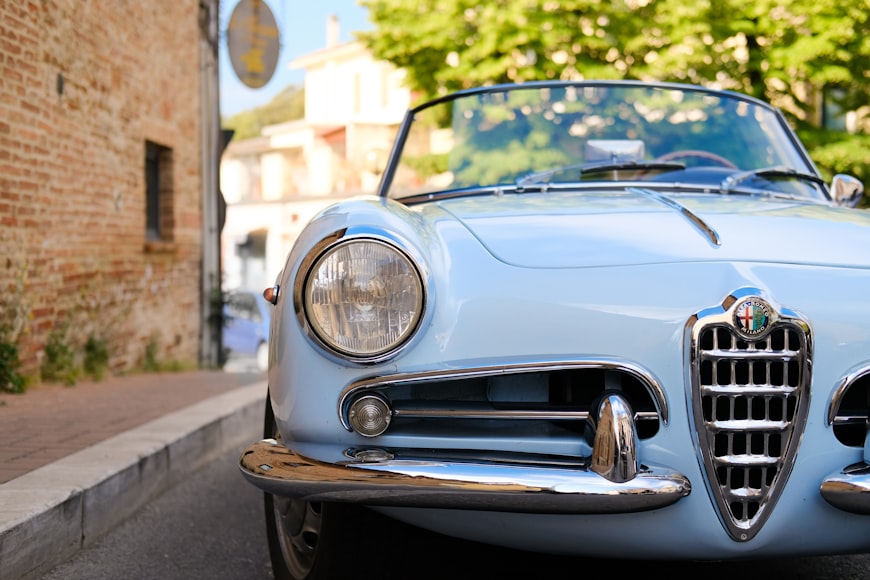Surging Joy: Can Car Insurance Cover Repairs – The Truth Revealed 1

| In this article we will read about: |
|---|
| Introduction |
| Does car insurance cover paint damage? |
| Will a car cover damage my car? |
| Is peeling paint covered by insurance? |
| What are the disadvantages of a car cover? |
| When should you not use a car cover? |
| Do car covers leave scratches? |
| Does peeling paint mean leak? |
| Is peeling paint normal? |
| What do I do if my car paint is peeling? |
| Is car cover good or bad? |
| What is best material for car cover? |
| How long do car covers last? |
| What is the best color for a car cover? |
| Can I cover my car when it’s hot? |
| Should we wash car cover? |
| Do car covers protect from sun damage? |
| Conclusion |
| Frequently Asked Questions and Its Answers |
Introduction
Car insurance is essential for protecting yourself and others from financial losses in the event of an accident or other unforeseen events. While car insurance is commonly associated with liability coverage and personal injury protection, it can also cover repairs to your vehicle. In this article, we will explore the extent to which car insurance can cover repairs, the types of repairs that are typically covered, and the process of filing a claim for repair costs.
With the average cost of car repairs ranging from $500 to $1,500 or more, depending on the severity of the damage, having comprehensive coverage can help alleviate the financial burden of unexpected repair bills. Whether you’re dealing with minor scratches or major damage from an accident, car insurance can help get your vehicle back on the road.
Does Car Insurance Cover Paint Damage?
The insurance on your car may also be able to cover damage caused by paint, however it’s contingent upon the kind of coverage you’ve purchased. Comprehensive coverage usually covers damages that is caused by vandalism, theft, or natural catastrophes, all that can cause damages to paint.
Collision coverage can also protect the damage to paint if result of accidents. The typical liability insurance doesn’t cover these repairs since it protects properties or other vehicles. You should review the policy’s details, and talk with your insurance company to know the scope of your coverage, as well as the specific limitations that may be applicable.
Will a Car Cover Damage My Car?
Car covers are intended to shield your vehicle from damage however, if used appropriately, they may result in damages. Covers that are not properly fitted can scratch the paint leading to wear or scratches. Dust and dirt that is trapped in the cover may also scratch the surface of the paint.
Furthermore, covers that are made of rough materials could damage your paint finish of your car. For a lower risk make sure you choose the best quality, well-fitted covers and thoroughly clean your car prior to wrapping it in. Check regularly both your vehicle and the cover for indications of damage or wear to ensure optimal protection of your car.
Is Peeling Paint Covered by Insurance?
The peeling of paint is not usually insured by insurance companies for cars because it’s viewed as a maintenance problem instead of damage caused by an event that is insurable. Insurance companies usually view paint peeling due to wear and tear, exposure to elements or poor repairs.
If you are experiencing peeling paint, you may need to talk with an expert for a painting repair or think about warranties if the issue stems from some manufacturing defect. A regular maintenance schedule and treatment can stop peeling paint and extend the lifespan of your vehicle’s exterior paint.(can car Insurance cover repairs)
What Are the Disadvantages of a Car Cover?
Although car covers provide protection however, they have a few drawbacks. When not properly used they could trap water which can cause mold or mildew development. If it’s windy the cover that is not properly secured could sag against your car and cause scratches. Certain covers can be difficult to install and take off and take off, making it difficult to remove them.
In addition, poor or cheap covers could not provide enough protection, and may even harm the car’s paint. You must choose the best cover that meets your needs, and to ensure the fit is right to prevent the potential negatives.(can car Insurance cover repairs)
Can Car Insurance Cover Repairs
When Should You Not Use a Car Cover?
There are some situations in which the use of a vehicle cover isn’t recommended. For instance, in very stormy weather, a cover could not be able to stay on its own and do more harm than good through scratching paint. If your vehicle is filthy the cover could collect dirt and dust, creating scratches.
In the humid or wet conditions the cover that is not breathable can hold in moisture and cause the formation of mold or rust. Make sure to consider the weather as well as the condition of your car prior to putting on a cover in order to make sure you’re offering optimal protection, without accidentally damaging your vehicle.(can car Insurance cover repairs)
Do Car Covers Leave Scratches?
Covers for cars can cause scratches when they’re not utilized in a proper manner. They typically happen due to debris and dirt getting caught between the cover and the vehicle’s surface. Also, covers that are made of tough materials or do not fit properly can result in scratching, which can lead to scratch marks.
To avoid this, wash your vehicle prior to covering the vehicle. Make sure you use a premium covers made of soft material and make sure it has a secure fit. Maintaining regularly and inspecting your vehicle and cover will help reduce the chance of scratching as well as keep the paint on your car looking good.(can car Insurance cover repairs)
Does Peeling Paint Mean Leak?
The peeling of paint on your car doesn’t necessarily mean the presence of a leak. It could indicate underlying problems, such as corrosion or poor adhesion to an earlier paint job. If you notice that the paint is peeling on areas susceptible to exposure to water for instance, close to seals or windows It is worth investigating leaks.
Water exposure can result in corrosion of the paint and deterioration in the event that it is not taken care of. Conducting regular inspections and fixing the signs of rust and damaged quickly can prevent further problems and preserve the strength of your vehicle’s exterior and paint.Read more
Is Peeling Paint Normal?
It isn’t normal to see paint peel and is usually a sign of the presence of a problem. The most common causes are poor adhesion to paint and exposure to harsh elements or the damage caused by particles. In time exposure to UV radiation extreme temperatures, UV rays, as well as pollutants, can weaken paint, causing it to peel.(can car Insurance cover repairs)
Although it’s not unusual to see older cars or ones which haven’t had a regular maintenance program to have peeling paint it’s usually a sign your car requires attention. In the early stages, addressing peeling paint will keep the damage from getting worse and preserve the appearance of your car and its value.
What Do I Do If My Car Paint Is Peeling?
If your car’s paint is fading, it’s important that you address the issue immediately in order in order to avoid the possibility of further damage. Begin by cleansing the area affected to eliminate the dirt and paint that has escaped. Paint can be applied as a touch-up on small areas, or ask with a specialist for bigger repairs. Body shops can evaluate the issue and offer alternatives for repainting or refinishing.(can car Insurance cover repairs)
Sometimes the need for a full repaint may be needed to re-shape the look of your vehicle. Routine maintenance, including applying wax and protecting paintwork, will help to avoid peeling in the future and increase the longevity of your car’s exterior.Read more
Is Car Cover Good or Bad?
The cover for your car could be good or negative, based on the way you use it. High-quality covers can shield your car from ultraviolet radiation, dust and other debris, while also protecting its interior and paint. But, a poorly-fitting or poor-quality cover could create scratches and hold in moisture that can lead to the development of mildew and rust.
The most important thing is to pick the appropriate cover for your vehicle and then use it in a proper manner. Make sure the cover is constructed of breathable, soft materials and is well-fitting. Cleansing regularly your car as well as the cover will help maximize the benefit and limit the potential negatives.
What Is the Best Material for Car Cover?
The most suitable material to cover your car will depend on your particular needs and the environmental conditions. To store items indoors an breathable and soft material such as polyester or cotton will protect you from dirt and scratches.
Outdoor use requires the more weather-proof, durable fabric such as polypropylene, or a synthetic blend of high-end quality can be recommended to shield against ultraviolet rays, pollution, and rain.
Choose covers that have characteristics that include UV protection along with water resistance as well as good airflow to stop the buildup of moisture. Making the investment in a top-quality covers can offer better security and longer-lasting protection for your car.(can car Insurance cover repairs)
How Long Do Car Covers Last?
The longevity of a vehicle cover differs based the quality of its material and its use. Top-quality car covers constructed of robust materials last for many years with normal usage. But, less expensive, low-quality covers could last just one or two years before degrading.
The environmental factors like exposure to extreme heat, intense sunlight as well as heavy rain can affect the durability of your cover. Monitoring and regularly maintaining your cover for your car along with properly using it, can increase its longevity and help ensure that it will continue to safeguard your car effectively.
What Is the Best Color for a Car Cover?
The most appropriate color for the car cover is determined by your preferences and needs. The lighter-colored ones, like white or silver, will reflect sunlight and ensuring your vehicle stays cooler which makes them an excellent option in hot climates. Dark-colored covers like dark blue or black will absorb more heat that could be advantageous when you live in colder areas.(can car Insurance cover repairs)
In addition, you should consider the appearance and visibility; a vibrantly-colored cover will be easy to see, thus reducing chances of accidents in the event that you park your vehicle in an area that is crowded. In the end, pick a shade that is a balance between protection as well as temperature control and individual preference.
Can I Cover My Car When It’s Hot?
The idea of covering your vehicle in the event that it is warm is usually safe however there are some things to consider. If your vehicle is particularly hot, let it get a little cooler to avoid from absorbing excessive heat. This could damage paint as well as the interior.
Choose a car cover that is made of air-tight material to avoid condensation and to allow the heat to escape. Beware of dark-colored covers in temperatures that are hot, since they will absorb the heat. If you are in an area that is particularly hot consider investing in a reflective car cover to help keep your car cool through reflecting light and delaying the buildup of heat.(can car Insurance cover repairs)
Should We Wash Car Cover?
Cleaning your car cover is vital to maintaining its efficiency and extending its life. In time, dust pollution, and dirt could build up on the cover, possibly causing scratches, and decreasing the protection capabilities of the cover. Be sure to follow the instructions of the manufacturer for washing as various types of materials require different ways of cleaning.
In general, hand washing using water and soap is advised. Make sure the cover is dry prior to use to stop mildew and mold development. Regularly cleaning helps to keep your vehicle as well as the cover in top shape.(can car Insurance cover repairs)
Do Car Covers Protect against Sun Damage?
Car covers provide shielding from damage caused by sun. UV radiation from the sun could cause the paint of your vehicle to degrade and fade and can also damage interior components like the dashboards and upholstery. An excellent, UV-resistant vehicle cover protects your car from harmful UV rays, conserving its beauty and value.(can car Insurance cover repairs)
To ensure the highest level of protection opt for a car cover made for UV resistance. Also, make sure it is fitted properly so that sunlight doesn’t get to the surface of your car. Regularly using a car cover will significantly lower the chance of damage caused by sun.
Conclusion
Knowing the intricacies of car insurance and the advantages and disadvantages of the use of a vehicle cover will assist you to make an informed decision regarding the protection of your car. Insurance can be used to cover specific types of paint damage regular maintenance and the correct car cover is vital to maintain your vehicle’s look and value.
If you choose high-quality products and ensuring that the fit is perfect and adhering to the best practice will get the most benefit from a car cover to ensure that your car is looking the best it can for the years to be.(can car Insurance cover repairs)
Frequently Asked Questions and Its Answers
Q: Does car insurance cover repairs?
Answer:Yes, car insurance can cover repairs to your vehicle, depending on the type of policy and coverage you have.
Q: What types of repairs are covered by car insurance?
Answer:Car insurance typically covers repairs to your vehicle’s body, engine, transmission, and other components, as well as repairs to tires, glass, and other parts.
Q: How do I file a claim for repair costs?
Answer:To file a claim, contact your insurance provider, provide required documentation and information, and follow the claims process.
Q: What is the process for getting my vehicle repaired?
Answer:The process typically involves taking your vehicle to a repair shop, getting an estimate, and having the repairs done.
Q: Are there any limitations or exclusions to repair coverage?
Answer:Yes, some policies may have limitations or exclusions, such as wear and tear, maintenance-related repairs, or damage caused by certain events.
Q: How can I choose the right car insurance policy for my repair needs?
Answer:Consider your vehicle’s value, age, and condition, as well as your financial situation and repair needs, and compare policies from different providers.
Q: Can I choose my own repair shop?
Answer:Yes, most insurance companies allow you to choose your own repair shop, but some may have preferred providers.
Q: How long does it take to get my vehicle repaired?
Answer:The time frame varies depending on the extent of the damage, the repair shop’s workload, and the claims process.
Q: Will my insurance rates increase if I file a claim for repairs?
Answer:Possibly, depending on the circumstances of the claim and your insurance provider’s policies.



